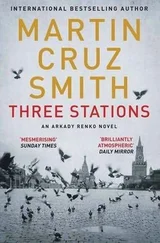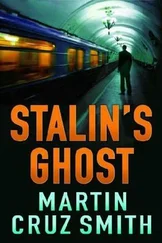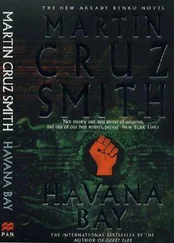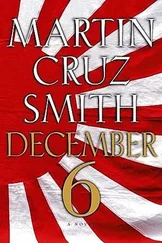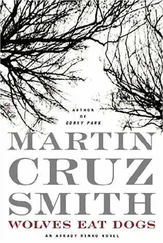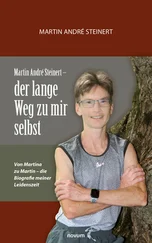Martin Smith - Tatiana
Здесь есть возможность читать онлайн «Martin Smith - Tatiana» весь текст электронной книги совершенно бесплатно (целиком полную версию без сокращений). В некоторых случаях можно слушать аудио, скачать через торрент в формате fb2 и присутствует краткое содержание. Жанр: Полицейский детектив, на английском языке. Описание произведения, (предисловие) а так же отзывы посетителей доступны на портале библиотеки ЛибКат.
- Название:Tatiana
- Автор:
- Жанр:
- Год:неизвестен
- ISBN:нет данных
- Рейтинг книги:4 / 5. Голосов: 1
-
Избранное:Добавить в избранное
- Отзывы:
-
Ваша оценка:
- 80
- 1
- 2
- 3
- 4
- 5
Tatiana: краткое содержание, описание и аннотация
Предлагаем к чтению аннотацию, описание, краткое содержание или предисловие (зависит от того, что написал сам автор книги «Tatiana»). Если вы не нашли необходимую информацию о книге — напишите в комментариях, мы постараемся отыскать её.
Tatiana — читать онлайн бесплатно полную книгу (весь текст) целиком
Ниже представлен текст книги, разбитый по страницам. Система сохранения места последней прочитанной страницы, позволяет с удобством читать онлайн бесплатно книгу «Tatiana», без необходимости каждый раз заново искать на чём Вы остановились. Поставьте закладку, и сможете в любой момент перейти на страницу, на которой закончили чтение.
Интервал:
Закладка:
Martin Cruz Smith
Tatiana
PROLOGUE
It was the sort of day that didn’t give a damn. Summer was over, the sky was low and drained of color, and dead leaves hung like crepe along the road. Into this stillness dashed a cyclist in red spandex, pumping furiously, taking advantage of the flat terrain.
Joseph spoke six languages. In restaurants he spoke French, with tradesmen he preferred Chinese and he dreamed in Thai. He was a one-man crowd. It meant that he could travel and find work anywhere in the world. The United Nations sent him one place and the European Union sent him somewhere else. Always, he took his black custom-made bike, his designer jersey and shorts, his molded saddle and tear-shaped helmet. He had started biking too late in life to be a competitive racer, but he could astonish the locals at most rallies. Anyway, winning didn’t matter. It was the tension, the feeling of a drawn bow, that he found most satisfying. At this point he calculated he had ridden twice around the world. He’d never married. His schedule wouldn’t allow it. He felt sorry for saps stuck on tandem bikes.
He loved word games. He had a photographic memory-an eidetic memory, to be exact. He could look at a crossword puzzle and play it out in his mind while he biked, teasing out those words that existed only in crossword puzzles: ecru, ogee, amo, amas, amat . A clue that was not in English was all the easier. A tort was a civil action; a torte was a piece of cake. A full-grown anagram could occupy his mind from Toulon to Aix-en-Provence. He had the afternoon off, and he needed it after interfacing in Russian and Chinese. When the two sides broke early, the interpreter seized the opportunity to ride.
He prided himself on finding routes out of the ordinary. His idea of hell was being in Tuscany or Provence stuck behind tourists wobbling on and off the road in rented bikes as they worked off a lunch of cheese and wine. Elastic pockets in the back of his jersey held water bottles, energy bars, a map and repair kit. He was willing to patch a tire or two if he could have a new vista to himself. Kaliningrad had a reputation of being ugly and crime ridden, a city that was an orphan or bastard or both. Escape the city, however, and, voilà, a pastoral delight.
He was born to translate; his father was Russian, his mother French, and both were Berlitz instructors. In boarding school he spread a rumor that they were dead, tragically killed in a car crash in Monte Carlo, and became the boy most invited for the holidays by wealthy classmates. He was ingratiating and sometimes he imagined ending his days as a guest in a villa not far from the sea. He still sent his parents a card at Christmastime, although he hadn’t seen them for years.
He interpreted for film stars and heads of state, but the most lucrative work was corporate negotiations. They were usually carried out by small teams operating in strict confidentiality and an interpreter had to be omnipresent yet nearly invisible. Most of all, he had to be discreet, trusted to forget what he heard, to wipe the slate clean when the job was done.
As the road became a country lane he flew past occasional ruins of brick smothered by lilacs. Fortunately, there was almost no traffic. He navigated pothole after pothole and, at one point, rode through asphalt as humped as waves. A butcher’s van with a plastic pig on the roof came the opposite way and seemed to aim straight at the bike until they passed like ships at sea.
In fact, the interpreter had not erased everything. There were his notes. Even if the notes were stolen, they would be safe, because nobody could read them but himself.
The road ended at a desolate parking area with a shuttered kiosk and a billboard of events past. An ice-cream cart lay on its side. Everything described postseason ennui. Nevertheless, when he heard the screech of gulls he got off his bike and carried it over the brow of a dune to a view of a beach that stretched in either direction as far as he could see and wavelets that advanced in regular order. Mist turned the sea and sky into luminous bands of blue. Sand skipped in the wind and nestled into beach grass that grew among the dunes. Rough wooden beach umbrellas, stripped of canvas, stood guard, but no one else was in view, which made it perfect.
He set the bicycle down on the sand and removed his helmet. This was a find. This was the sort of mini-adventure that would make for a good story around the fireplace with a glass of red wine and a captivated audience. A little derring-do to cap his career. To give it significance ; that was the word.
Although the air was cool, Joseph was warm from cycling, and he removed his biking shoes and socks. The sand was fine, not like the loose stones of most resorts, and unspoiled, probably because Kaliningrad had been a closed city during the Cold War. Water rushed up, hissed around his feet, and drew back.
His reverie was interrupted by the approach of a vehicle rolling like a drunken sailor across the beach. It was the butcher van. The plastic piggy, pink and smiley, rocked from side to side until the van came to a stop and a man about thirty years old with a homburg and stringy hair climbed out. A dirty apron fluttered around him.
“Looking for amber?”
Joseph asked, “Why would I be looking for amber?”
“This is the place. But you have to wait for a storm. You have to wait for a storm to rile up all the amber.”
Roil, not rile, Joseph thought, but let it pass. Joseph detected nothing in common with the man, no intellect to engage with. Sooner or later the character would demand money for vodka and they’d be done.
“I’m waiting for friends,” Joseph said.
The tilt of the homburg lent the butcher an antic air. He seemed dizzy or drunk-in any case, so amused at a private joke that he stumbled into the bike.
“Idiot! Watch where you’re going!” Joseph said.
“Sorry, real sorry. Say, is this Italian?” The butcher picked up the bicycle by its top rail. “S’fucking beautiful. You don’t see many of these in Kaliningrad.”
“I wouldn’t know.”
“You can take my word for it.”
Joseph noticed that the butcher’s hands were nicked and raw from handling frozen beef, and his apron was suitably daubed with liverish stains, although his sandals were hardly appropriate footwear for slippery ice lockers.
“Can you give me the bike, please? The last thing I want is sand in the gears.”
“No problem.” The butcher let the bike drop and brightly asked, “Holidays?”
“What?”
“It’s a question. Are you here on holidays or business?”
“Holidays.”
The butcher’s face split into a grin. “Really? You came to Kaliningrad for a vacation? You deserve a medal.” He pretended to pin a decoration to Joseph’s chest. “Give me the highlights of Kaliningrad. Like, what did you see this morning?”
Joseph had worked all morning, not that it was anyone else’s concern, but the butcher produced a nickel-plated pistol that he weighed in his hand like loose change. What had been to Joseph a cool breeze now gave him a chill, and grains of sand stuck to the sweat on his skin. Maybe this was an ordinary shakedown. No problem. He would pay whatever was asked and be reimbursed by the client.
“Are you the police?”
“Do I look like the fucking police?”
“No.” Joseph’s heart sank. He had been trained to be calm and cooperative in hostage situations. The statistics were actually reassuring. People only got killed when someone tried to be a hero. “What do you want?”
“I saw you at the hotel with those people. They’re surrounded by bodyguards and have a whole floor to themselves.” The butcher became confidential. “Who are they?”
Читать дальшеИнтервал:
Закладка:
Похожие книги на «Tatiana»
Представляем Вашему вниманию похожие книги на «Tatiana» списком для выбора. Мы отобрали схожую по названию и смыслу литературу в надежде предоставить читателям больше вариантов отыскать новые, интересные, ещё непрочитанные произведения.
Обсуждение, отзывы о книге «Tatiana» и просто собственные мнения читателей. Оставьте ваши комментарии, напишите, что Вы думаете о произведении, его смысле или главных героях. Укажите что конкретно понравилось, а что нет, и почему Вы так считаете.

